If you’re looking for a sheet metal manufacturer for your business, there are several factors you need to consider. Sheet metal fabrication is a complex process that requires expertise and specialised equipment. Choosing the right manufacturer can make all the difference in the quality of your products and the success of your business. In this article, we’ll explore everything you need to know to choose the right sheet metal manufacturer.
What Is Sheet Metal Fabrication?
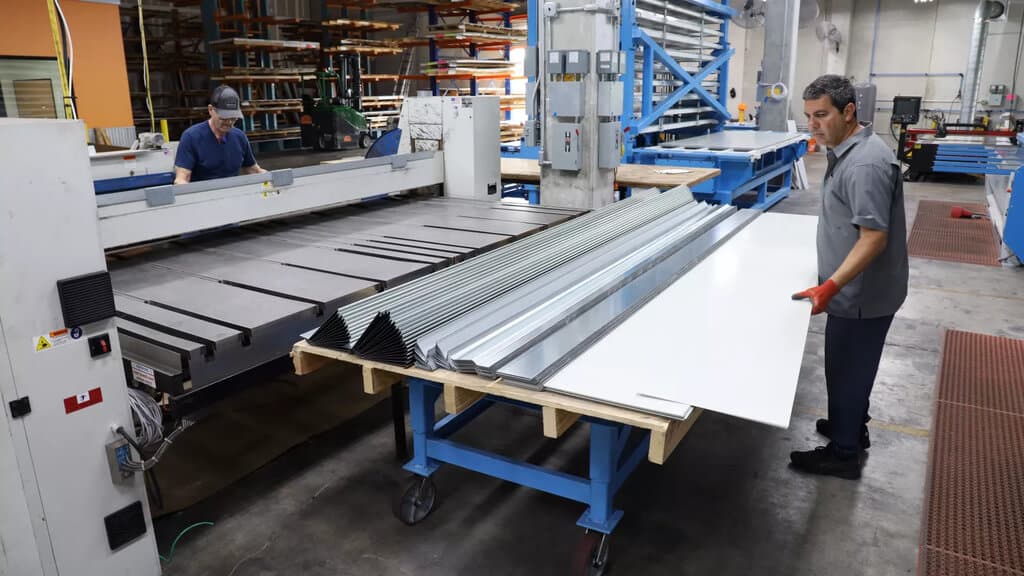
Sheet metal fabrication is a manufacturing process that involves cutting, bending, and shaping sheet metal to create a finished product. Sheet metal can be made from a variety of materials, including steel, aluminium, copper, brass, and titanium. The thickness of the sheet metal can also vary, from thin foil to thick plate.
Sheet metal fabrication is used to create a wide range of products, from small components to large structures. Examples of sheet metal products include car parts, aircraft components, HVAC systems, and metal furniture.
Types of Sheet Metal Materials
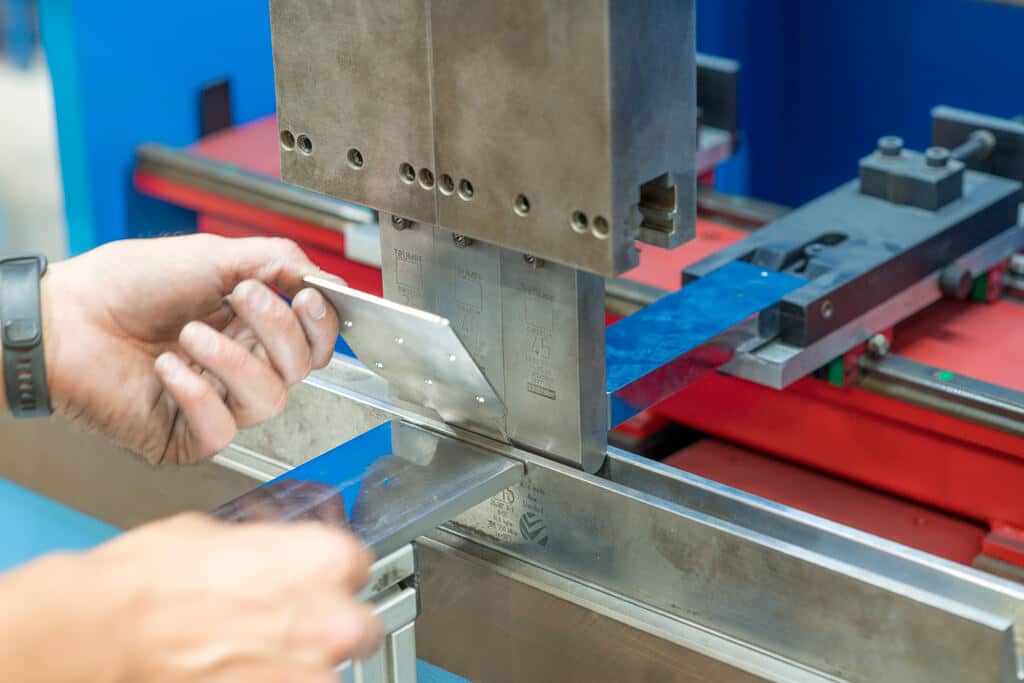
Sheet metal can be made from a variety of materials, each with its own unique properties and advantages. The most common materials used in sheet metal fabrication are:
Steel
Steel is a popular choice for sheet metal fabrication due to its strength, durability, and affordability. It can be easily formed and welded and is often used in automotive and construction applications.
Aluminium
Aluminium is lightweight, corrosion-resistant, and has a high strength-to-weight ratio. It is often used in aerospace and automotive applications.
Copper
Copper is highly conductive and has excellent corrosion resistance. It is often used in electrical and plumbing applications.
Brass
Brass is a combination of copper and zinc and has good corrosion resistance and a bright, attractive finish. It is often used in decorative applications.
Titanium
Titanium is lightweight and has excellent strength and corrosion resistance. It is often used in aerospace and medical applications.
Equipment and Tools Used in Sheet Metal Fabrication
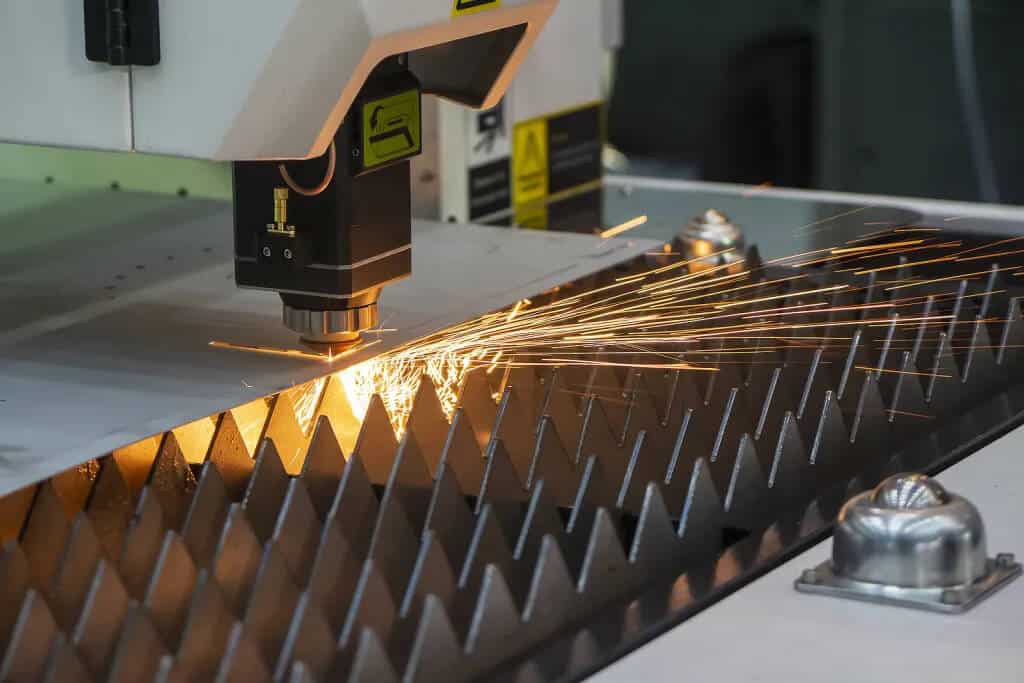
Sheet metal fabrication requires specialised equipment and tools to cut, bend, and shape the metal. Some of the most common equipment and tools used in sheet metal fabrication include:
Shears
Shears are used to cutting sheet metal to size.
Press Brakes
Press brakes are used to bend sheet metal into specific shapes and angles.
Rollers
Rollers are used to create cylindrical or conical shapes from sheet metal.
Punches and Dies
Punches and dies are used to create holes and other shapes in sheet metal.
Laser Cutters
Laser cutters use a high-powered laser to cut precise shapes in sheet metal.
Sheet Metal Manufacturing Process
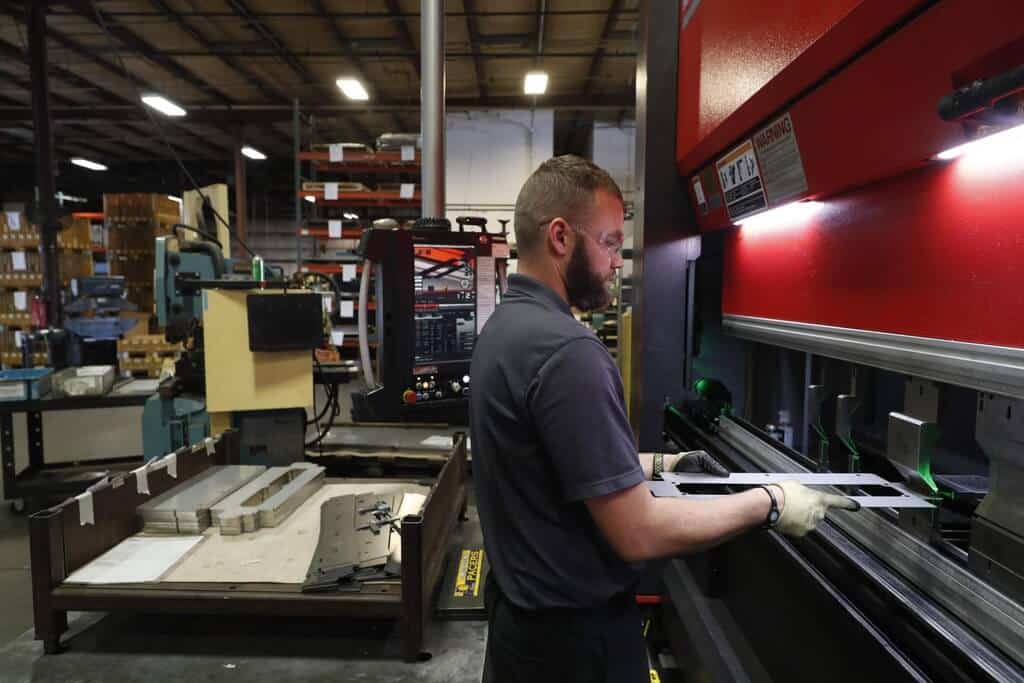
The sheet metal manufacturing process typically involves the following steps:
Design
The product is designed using computer-aided design (CAD) software.
Material Selection
The appropriate sheet metal material is selected based on the requirements of the product.
Cutting
The sheet metal is cut to size using shears, laser cutters, or other cutting tools.
Bending
The sheet metal is bent into the desired shape using press brakes or rollers.
Forming
The sheet metal may be formed into more complex shapes using deep drawing or spinning techniques.
Welding
The sheet metal may be welded together to create a larger structure.
Finishing
The sheet metal is finished with coatings or polishing to enhance its appearance and protect it from corrosion.
Choosing the Right Sheet Metal Manufacturer
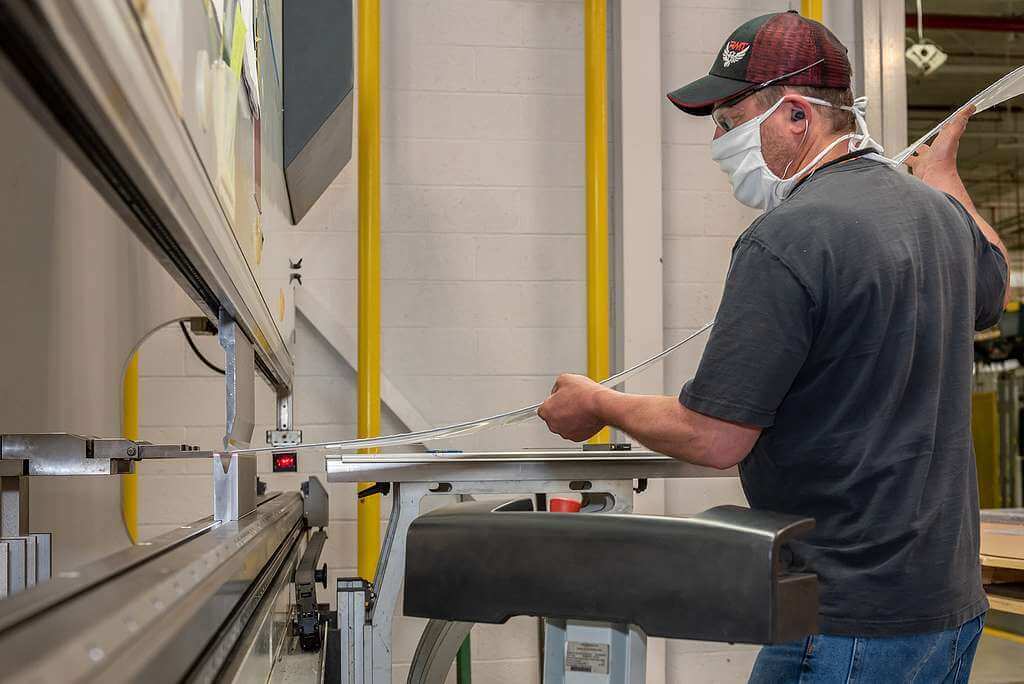
Choosing the right sheet metal manufacturer is critical to the success of your business. Here are some key factors to consider when selecting a manufacturer:
Experience and Expertise
Look for a manufacturer with years of experience in sheet metal fabrication. They should have a team of skilled technicians who are experts in their field. Ask for examples of their previous work and check references to ensure they have a proven track record of producing high-quality products.
Quality Assurance
Quality should be a top priority for any sheet metal manufacturer. Look for a manufacturer with a robust quality assurance program in place. They should use advanced testing methods and have a detailed inspection process to ensure that all products meet or exceed industry standards.
Customer Service
Choose a manufacturer that is responsive and communicative. They should be willing to work closely with you throughout the manufacturing process to ensure that your needs are met. Look for a manufacturer that offers transparent pricing and clear communication channels.
Customization Capabilities
Your sheet metal manufacturer should be able to customise their products to meet your specific needs. Look for a manufacturer that offers a wide range of materials, finishes, and production techniques to create a product that is tailored to your requirements.
Turnaround Time and Delivery
Time is money in business, so it’s important to choose a sheet metal manufacturer with a quick turnaround time. They should be able to produce your products efficiently without sacrificing quality. Look for a manufacturer that offers flexible delivery options to ensure that your products arrive on time.
Cost Factors in Sheet Metal Manufacturing
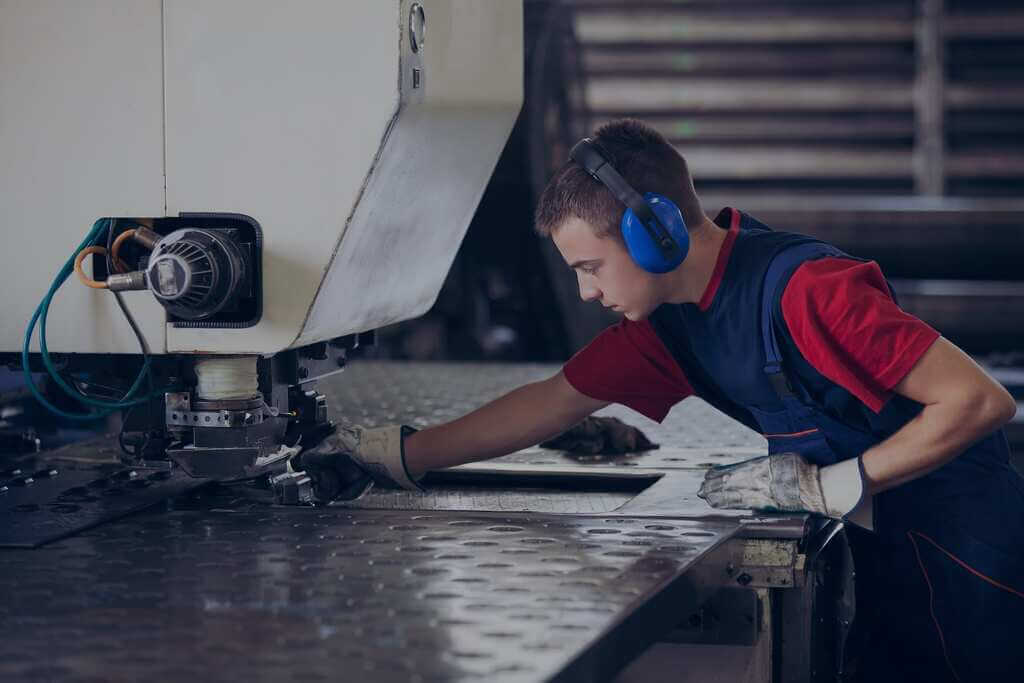
The cost of sheet metal manufacturing can vary widely depending on several factors, including:
Materials
The cost of sheet metal materials can vary depending on the type and thickness of the metal. Steel is generally the most affordable option, while titanium is the most expensive.
Labour Costs
Labour costs will depend on the complexity of the product and the skill level of the technicians involved in the manufacturing process.
Tooling Costs
Tooling costs refer to the cost of designing and producing the moulds, dies, and other equipment needed for the manufacturing process. These costs can be significant for custom products.
Sheet Metal Manufacturing Industry Trends
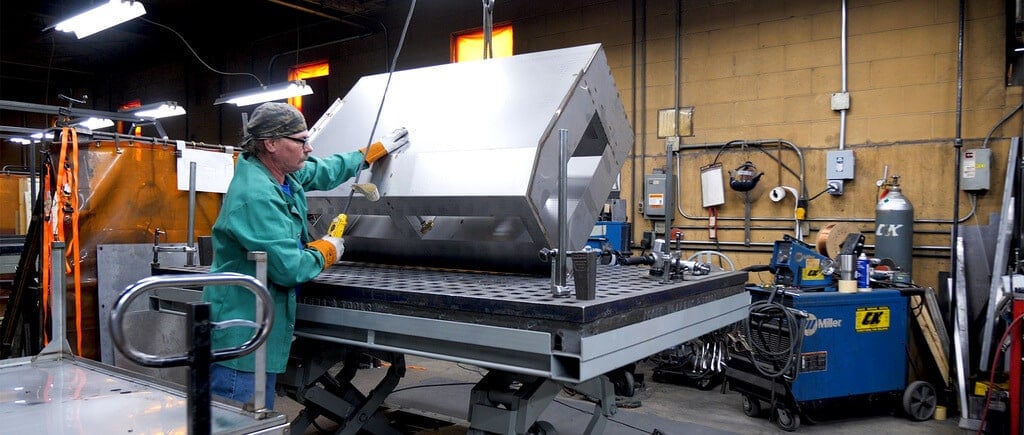
The sheet metal manufacturing industry is constantly evolving to meet the needs of customers. Here are some current industry trends to watch:
Automation and Robotics
Many sheet metal manufacturers are incorporating automation and robotics into their manufacturing processes to increase efficiency and reduce labour costs.
Advanced Materials
New materials are constantly being developed for use in sheet metal fabrication, including composites and advanced alloys.
Industry 4.0
Industry 4.0 refers to the integration of digital technologies into manufacturing processes. This can include data analytics, machine learning, and the Internet of Things (IoT).
Benefits of Working with a Sheet Metal Manufacturer
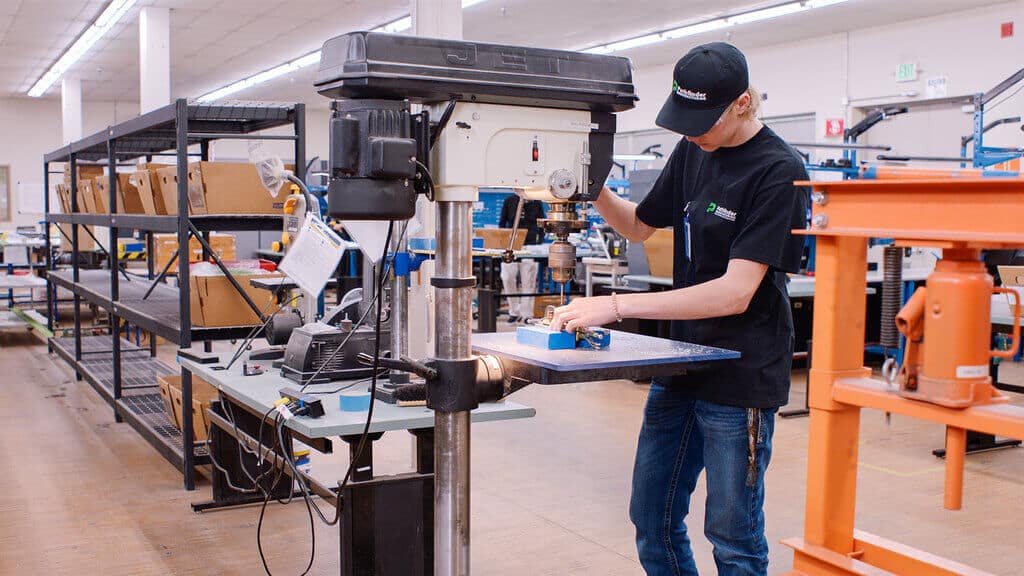
Working with a sheet metal manufacturer offers several advantages for businesses, including:
Customization
Sheet metal manufacturers can create products tailored to your specific needs.
Quality
Sheet metal manufacturers have the expertise and equipment to produce high-quality products that meet industry standards.
Efficiency
Sheet metal manufacturers can produce products quickly and efficiently, reducing downtime and increasing productivity.
Cost-Effectiveness
Sheet metal manufacturing can be a cost-effective option for producing high-quality products.
In Summary
Sheet metal manufacturing is a complex process that involves cutting, bending, forming, welding, and finishing sheet metal to create a wide range of products. Choosing the right sheet metal manufacturer is crucial for the success of your business, and factors such as experience, quality assurance, customer service, customization capabilities, and turnaround time should be considered when making your decision.
The cost of sheet metal manufacturing can vary widely depending on materials, labour costs, and tooling costs. However, working with a sheet metal manufacturer offers several benefits, including customization, quality, efficiency, and cost-effectiveness.
As the sheet metal manufacturing industry continues to evolve, incorporating automation and robotics, advanced materials, and Industry 4.0 technologies, it is important to stay up to date on current trends and innovations.
By partnering with a reputable sheet metal manufacturer, businesses can take advantage of the many benefits sheet metal fabrication offers. Whether you need custom parts for your machinery or finished products for your customers, a sheet metal manufacturer can provide the expertise and equipment needed to create high-quality products that meet your specific requirements.
Read more:-

